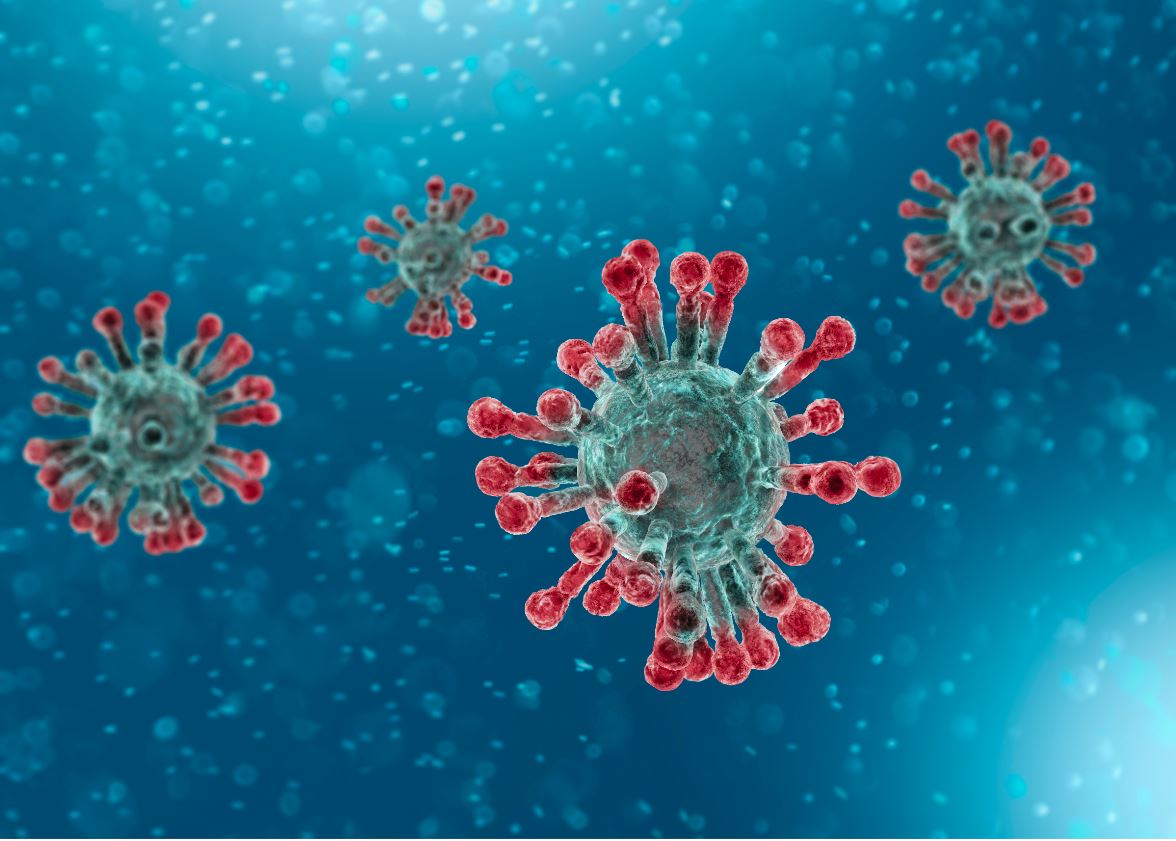We are all staying at home because of something called coronavirus, but what actually is a virus? Understanding the science behind viruses is the best way to make sense of our current situation. Here are all the basic facts you need to know, written by the editor of The Week Junior Science+Nature, Dan Green.

What are viruses?
Viruses are the smallest organisms on Earth. There are lots of them everywhere. There may be as many as 10 million million million million million viruses alive today. Most viruses are harmless to humans.
Because viruses can’t capture or store energy themselves, they rely on the cells of other living things, where they survive and reproduce. Outside the cell of another organism, viruses can only survive for a limited time.
To get an idea of how unbelievably small viruses are, take a look at this demo here.
What is the new coronavirus?
Coronaviruses are a family of viruses, some of which cause coughs and colds in humans. The 2019 novel coronavirus is the virus that is currently spreading across the world. Its official name is SARS-CoV-2 and the disease it causes is called Covid-19. It was first discovered towards the end of last year, in China, and is new to humans.
Scientists and medical experts don’t know everything about the novel coronavirus yet, but they are working fast to figure out how it behaves, and their knowledge is increasing. Because it’s new, what we know about it is constantly changing – something that is considered correct today might change in the future.
Why is it called coronavirus?
Close up, the coronavirus is a roundish blob covered in spikes made of protein (important chemicals found in all living things). Under a microscope, the spikes look like a crown surrounding the virus, and in Latin, the word for crown is “corona”.
How does it get inside a person’s body?
Scientists still don’t know exactly how coronavirus passes from person to person, but they think that it gets into the body by being breathed in, or when a person touches a contaminated surface and then their face. Coronavirus is mainly an infection of the cells of the nose, throat and lungs.
How long can coronavirus survive on a surface?
Scientists currently studying this question say that they think that the virus might be able to survive for two or three days on plastic and stainless steel surfaces. They point out that although this was what happened in their laboratories, the situation could be different in the world outside the lab.
What does coronavirus do inside the body?
SARS-CoV-2 attaches to cells in the body with its protein spikes. The virus has an outside layer that combines with the membrane surrounding a cell. Once the two have fused together, the virus slips inside. Viruses hack the cell’s chemical machinery, making it create copies of the virus. A multitude of viral copies then burst out of the cell and go on to infect other cells. While their body’s protective immune system is fighting the infection a person will feel poorly. If the immune system cannot control the virus, it eventually spreads through the body and can cause more damage.
How do viruses spread?
A person who is infected with a virus becomes loaded with virus particles, many of which are spread around by coughing and sneezing. Virus particles can then end up on a new potential host, or can sit around on surfaces such as door handles. Limiting the number of people that you mix with can slow down the progress of the disease and help to keep more people healthy. This is why we have all been asked to stay at home – to keep other, more at-risk, people safe.
What’s a pandemic?
On 11 March, the World Health Organization (WHO) declared that Covid-19 was a pandemic. This is a global outbreak of a disease. Once a disease spreads all over the world, it becomes hard to get rid of.
Is Covid-19 worse than flu?
For eight out of 10 people, Covid-19 is rather mild. This generally means feeling rotten for about a week, usually with a fever and a cough. Not nice, but also not necessarily dangerous. However, SARS-CoV-2 is nearly twice as easy as other flu viruses to catch and pass on to other people. Because this is the first time around that humans have met the novel coronavirus – unlike flu – the population does not have many defences against it. This is why it is important to separate people from each other to stop them passing the bug around.
Is there a test for Covid-19?
The current test for SARS-CoV-2 is to take a swab from the nose or throat of a patient and then sequence the DNA in the sample. DNA contains the chemical instructions for making and maintaining living things. If coronavirus DNA is detected in the sample, then the person has the virus.
Another test can detect virus-fighting proteins called antibodies in the blood and saliva. The test involves pricking a finger and analysing a drop of blood in a device. It can only tell if a person has had Covid-19, not if they currently have it.
Will there be a cure?
At the moment, there is no cure for Covid-19. However, lots of scientists are busy working right now to find a way to defeat it. Antibiotics kill a wide range of bacteria, but they do not work against viruses. There are not many anti-viral medicines. Some scientists are currently testing medicines that work against other viruses to see if they have any effect on coronavirus. Although there have been some successful trials of drugs in the USA, it takes a lot of time to make and test a drug to make sure that it is safe for everyone to use.
Other scientists are trying to develop a vaccine. This is a substance that is injected into a person’s body to give them immunity to a certain disease. Many scientists think coronavirus might become one of the bugs that affect people every year – just like winter flu. A Covid-19 jab could be given to the most at-risk people to help their bodies resist it.
What can I do to help stop it spreading?
The best thing that everyone can do is to keep their hands clean. Coronavirus is killed by soap and water. To protect it outside of a cell, the coronavirus is wrapped in an oily layer. Just like grease on dirty dishes, this layer can be broken down by soap and water, or alcohol, killing the virus. Reducing the number of people you come into contact with can stop the virus passing from person to person.
